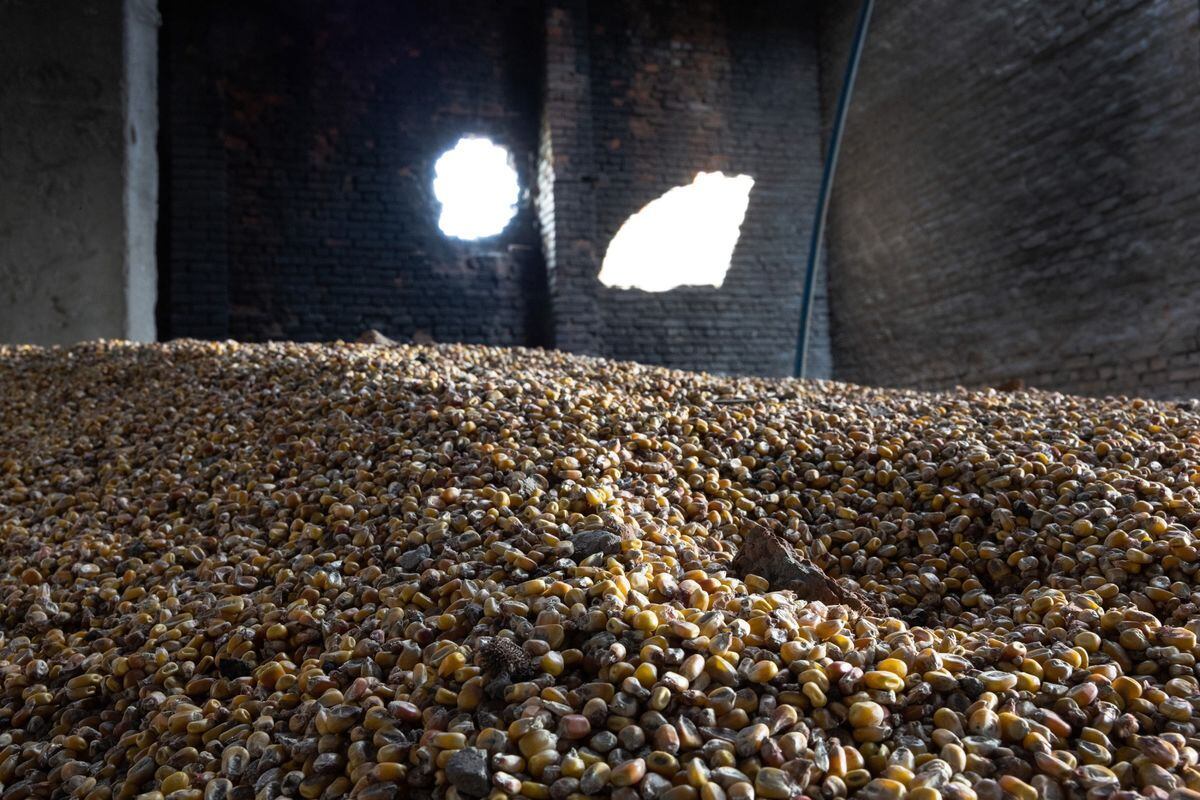
The United Nations warned Thursday of a new threat to the food safety world market, noting that Russia is limiting the number of ships allowed to pick up Ukrainian grain at Black Sea ports as part of its campaign to force Kiev to open a pipeline for a key fertilizer ingredient to reach world markets.
UN spokesman Stephane Dujarric expressed deep concern that only 33 ships left Ukrainian ports during May, half of those registered in April, and that exports of grain and other food products totaled just 1.3 tons last month, less than the half of the previous month.
He added that Russia informed the center located in istanbul which is in charge of coordinating the arrival, departure and inspection of the ships participating in the Black Sea Grain Initiative “of its decision to limit registrations in the port of Yuzhne as long as ammonia is not exported, and currently it is not.”
Ammonia is a key ingredient for making fertilizer and Moscow wants Ukraine open a pipeline from the Russian city of Togliatti to the Ukrainian port of Odessa, which was used before the war to ship ammonia to customers around the world.
Turkey and the UN brokered the initiative with Russia and Ukraine last July, opening a route for the export of Ukrainian grains. from three of its main Black Sea ports: Odessa, Chernomorsk and Yuzhne.
In a separate memorandum, the United Nations said it would work to overcome obstacles to food shipments and russian fertilizerssomething that the UN trade director, Rebeca Grynspan, has worked on for months, but Moscow has criticized the lack of results.
In order to highlight the lack of exports of its fertilizers, Russia chose last March to unilaterally renew the cereal agreement for 60 days instead of the 120 established in the pact. And in a new example of risky moves, Moscow agreed to a new two-month extension on May 17, just before the deal was set to expire.
After the start of the invasion of Russia to Ukraineone of the main breadbaskets of the world, world food prices skyrocketed, especially affecting the poorest countries.
After the July agreements, food prices began to fall, but Dujarric warned that “the global epicenters of famine are increasing and the specter of food inflation and market instability haunts all countries.”
Source: Press Agency (AP)
READ ALSO:
MEF: We expect the recent bond issue to reduce dollarization
Coffee and cocoa exports at stake due to rules against deforestation
Peru falls six places in the global ranking of favorable countries for entrepreneurship
Source: Gestion
Ricardo is a renowned author and journalist, known for his exceptional writing on top-news stories. He currently works as a writer at the 247 News Agency, where he is known for his ability to deliver breaking news and insightful analysis on the most pressing issues of the day.











